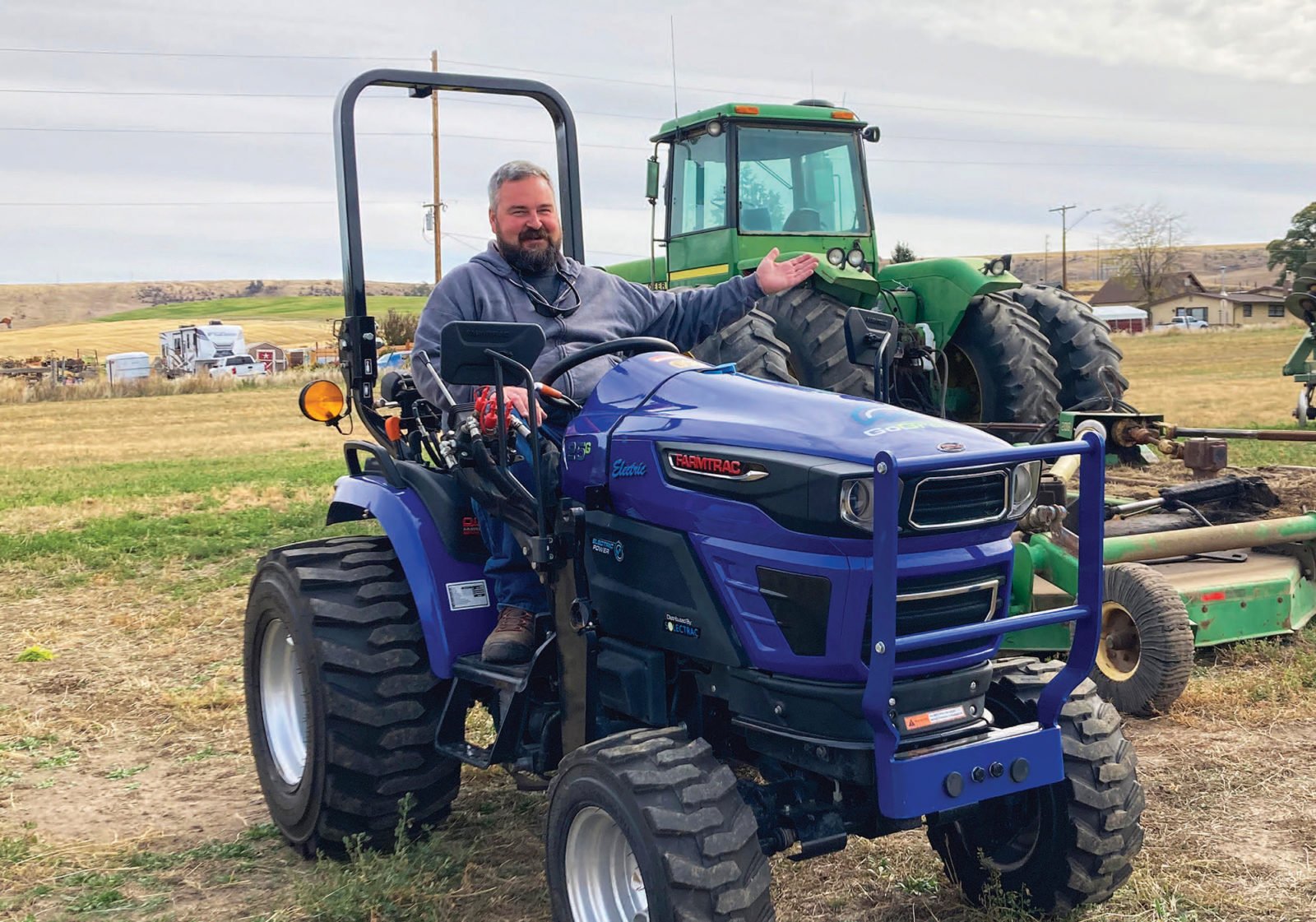E-FARMS
Through our E-Farms program, we purchase, test, and demonstrate electric tractors, pickup trucks, and other electric equipment on farms, forests, and ranches. This equipment is effective, affordable, and clean – and it helps improve air quality, lower costs, and increase energy independence.
The E-Farms team is made up of four Oregon nonprofits – Sustainable Northwest, Forth, Wy'East RC&D, and Bonneville Environmental Foundation. Together, we brought the first electric tractors to farms in Oregon in 2021 to evaluate the new technology.
Our team works to understand where electric tractors are best suited and better understand limitations with the units tested. As the initiative grows, we will test and demonstrate new brands and models and add electric trucks and other equipment to the program.
Connect with us and help us grow this movement towards healthier and better electric farm equipment! We have limited equipment available for demonstration. Fill out the form below to be considered!
Interested in hosting an electric tractor or other farm equipment?
“Our electric tractor does everything that a regular tractor does. This doesn’t have to be a compromise.”
– Dave Picanso from Rusted Gate Farm.
WHY GO ELECTRIC?
-
Similar to the first electric vehicle buyers, switching to a nascent technology like electric tractors can be challenging for farmers. After confirming a growing interest, our E-Farms partnership formed a “rideshare” program to get the technology out into Pacific Northwest fields and farms for testing.
We test several different makes and models of electric tractors and perform rigorous testing in varied conditions and weather. We partner with farmers, ranchers, and foresters to test the equipment on their operations. This provides data about where electric farm equipment performs best, for which tasks, and under which conditions.
-
Electric tractors and other electric farm equipment can bring many benefits to rural communities, and is one of the few expenses farmers are able to control. With electric equipment, farmers will save on fuel and maintenance costs, and performance is the same as other equipment with the same horsepower.
There is reduced noise and increased drivetrain efficiency in electric motors, making for a more enjoyable user experience. Electric equipment can be charged right on the farm, so producers will be less reliant on imported fuels and volatile market conditions.
Farmworkers will benefit from improved working conditions due to zero diesel particulate emissions, which can otherwise affect the health of farmers and their communities.
Finally, the entire region will benefit from less climate pollution, helping reach our climate goals for current and future generations of Northwesterners.
-
The tractors plug into a 220-240 volt outlet, which is frequently already built into barns as welding plugs. Tractors are typically stored in the same location every day, which is convenient for charging them after a workday. The charge time is approximately 4 hours based on current technology.
-
Electric tractors can last up to 3-7 hours in the field. Some models provide an option to swap batteries to extend the same-day time of use.
"We ran it for 3.5-4 hours pretty hard, and we would still have 30% (battery)," said Dave Picanso from Rusted Gate Farm.
-
Electric tractor fuel (electricity) is not only cheaper than diesel but more predictable and less susceptible to national and international market conditions. Electric fuel is readily available at your home or shop and doesn’t require delivery or storage like diesel fuel. Additionally, the more you operate your electric tractor, the greater the savings. Learn more and compare the total cost of ownership for an electric tractor through this Oregon State University study.
-
Electric tractors use far less energy than combustion engine tractors. Transitioning from an internal combustion (IC) diesel tractor to an electric can reduce climate pollutants from the tractor by 80%-90%. When powered by 100% carbon-free electricity, electric tractors will have no operational emissions.
Current testing is vital to understand the full range of e-tractor benefits. Our E-Farms partnership currently owns several models of e-tractors installed with remote sensors to collect usage data and measure on-farm savings potential. Our e-tractors are rotated between farmers to test various applications and tasks. Collecting this data teaches us where the tractors perform best and find opportunities for additional electric farm equipment.
Electric equipment is cheaper to operate and healthier for you and the planet.


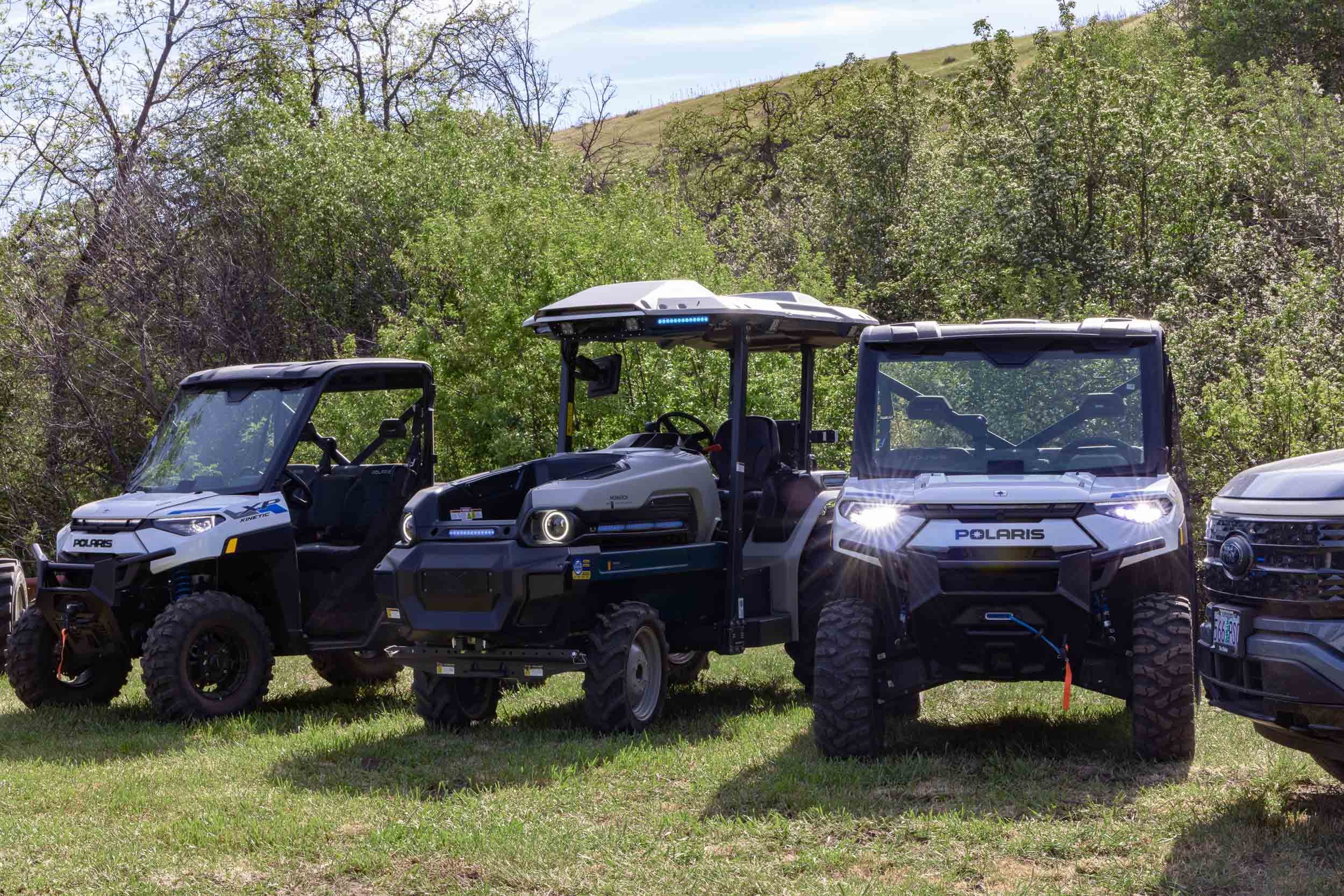
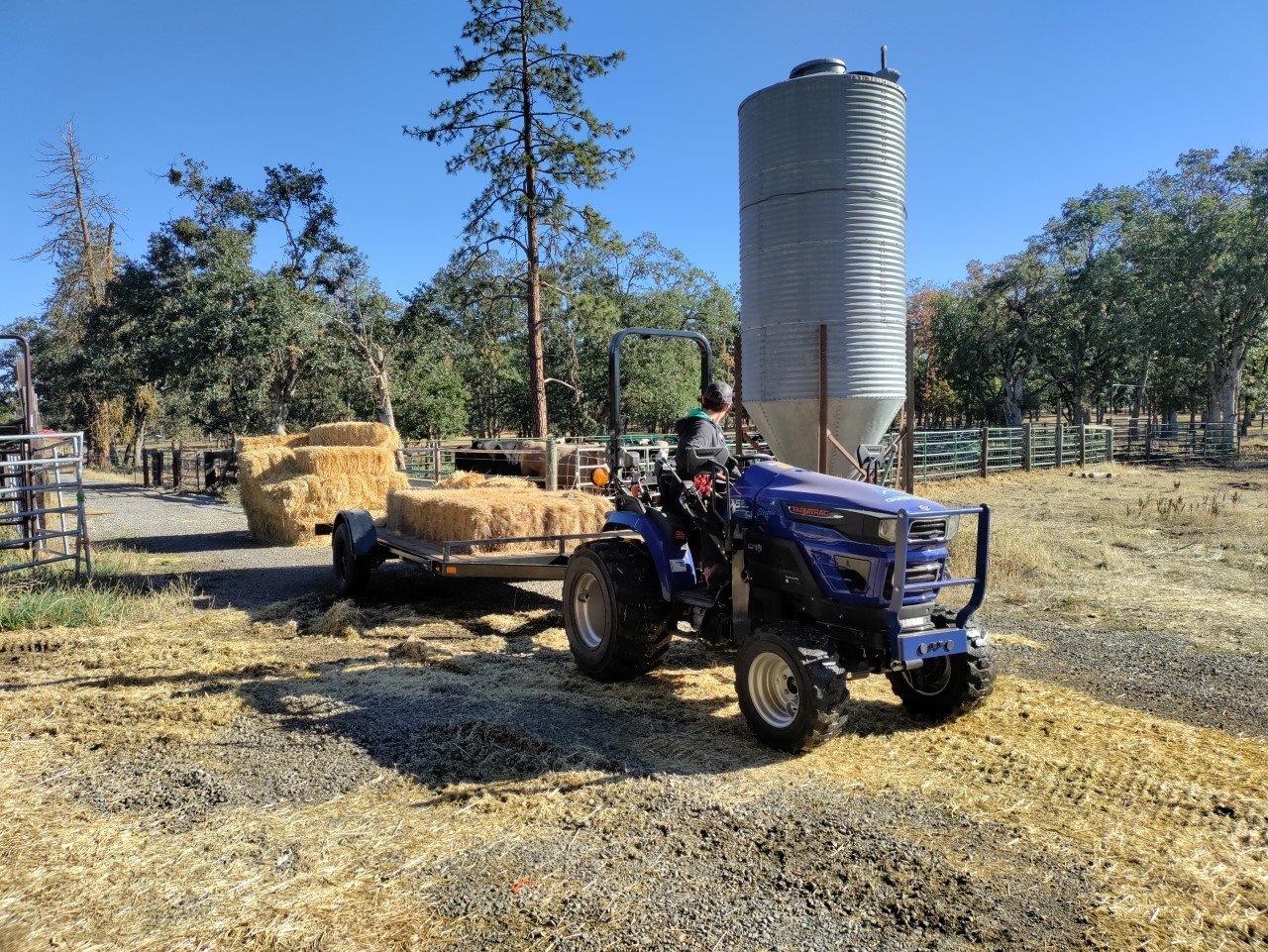

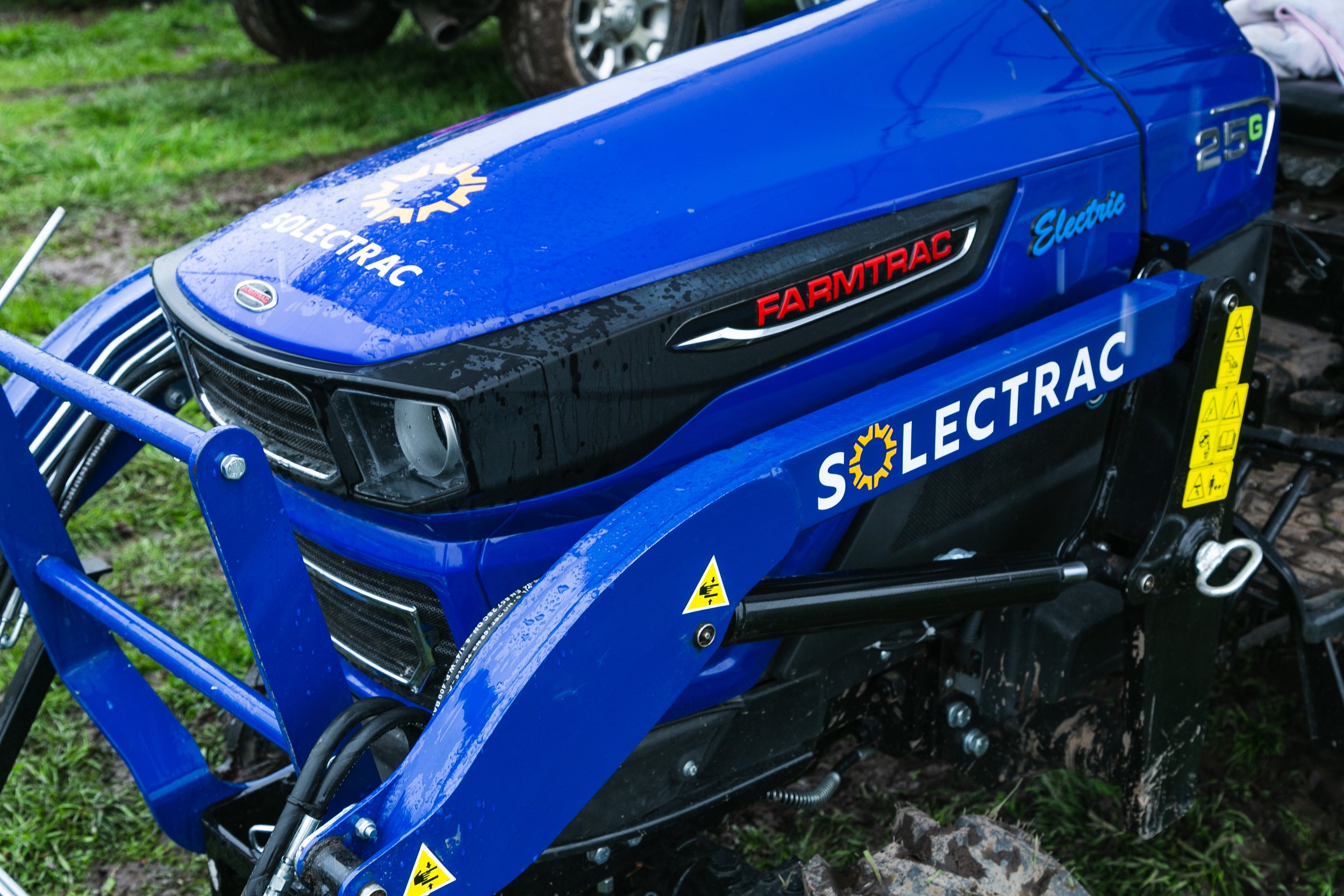
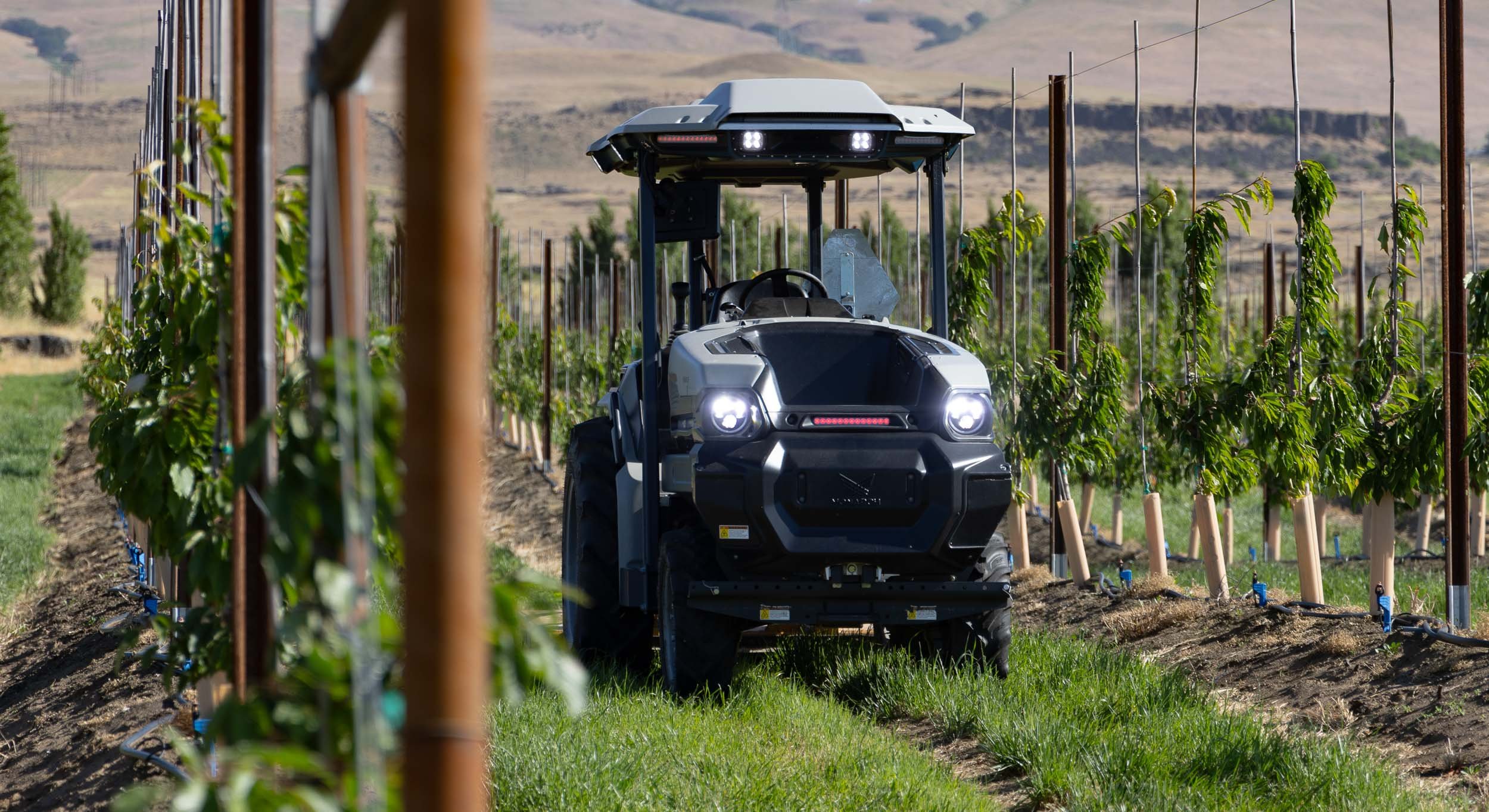
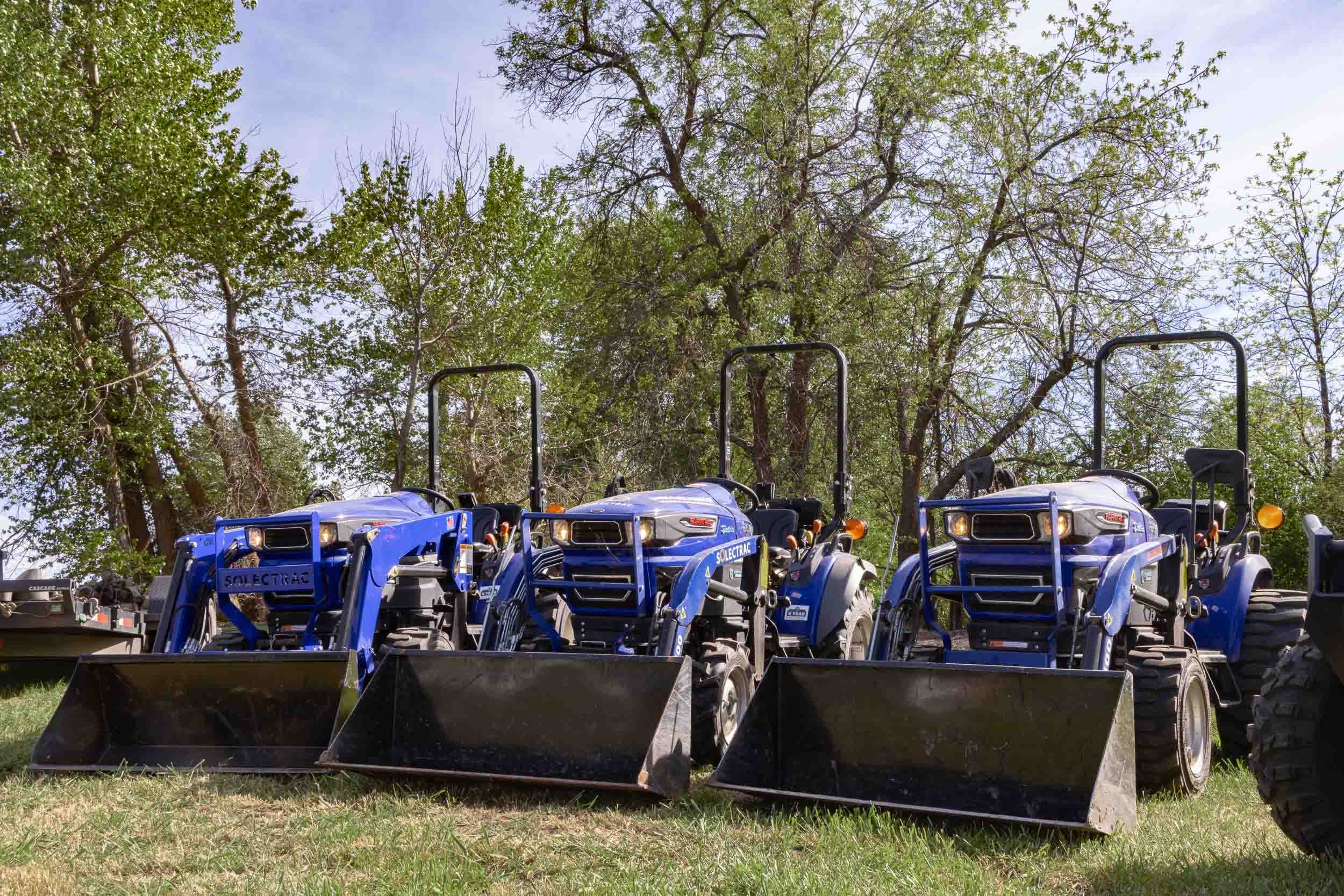

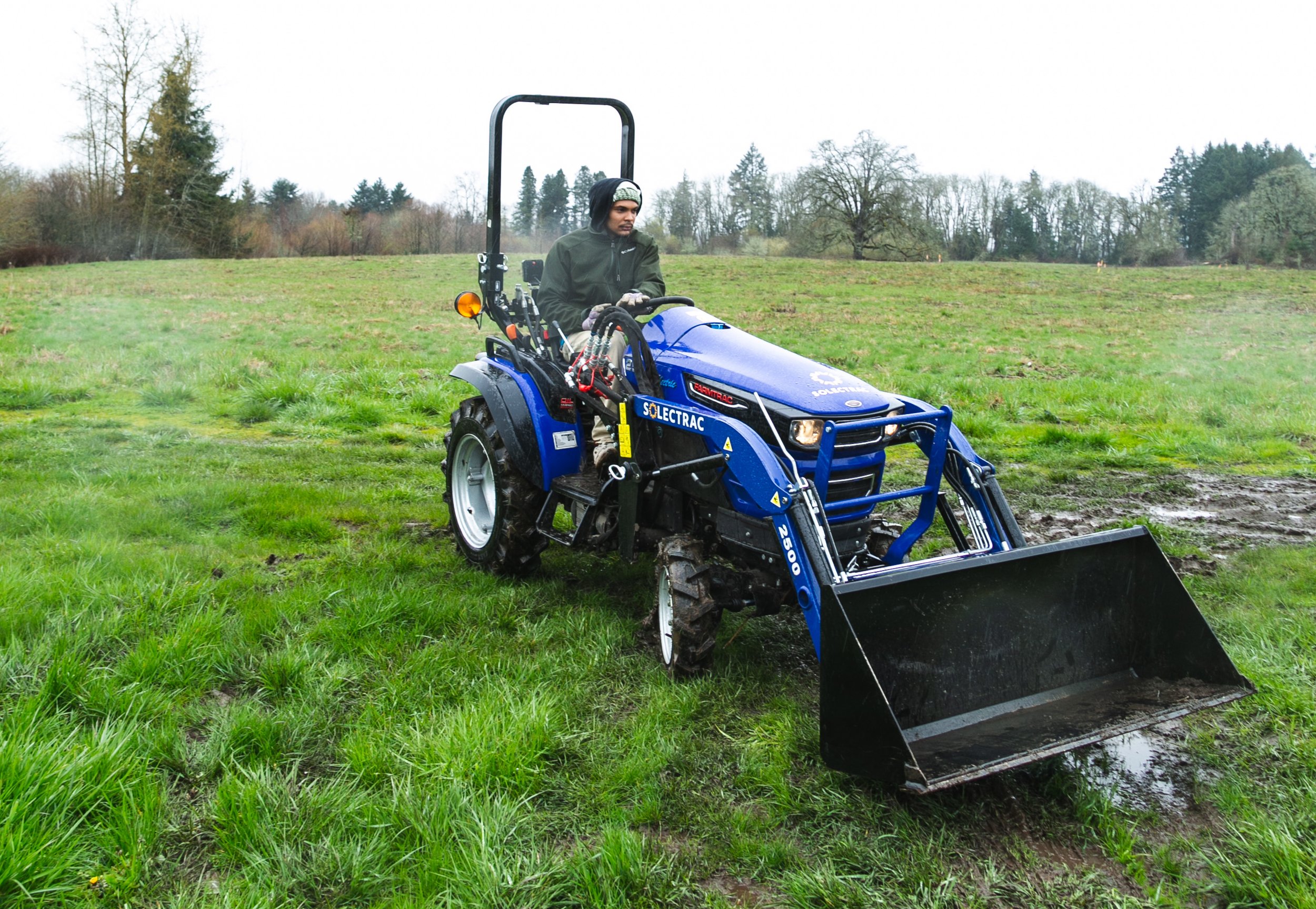
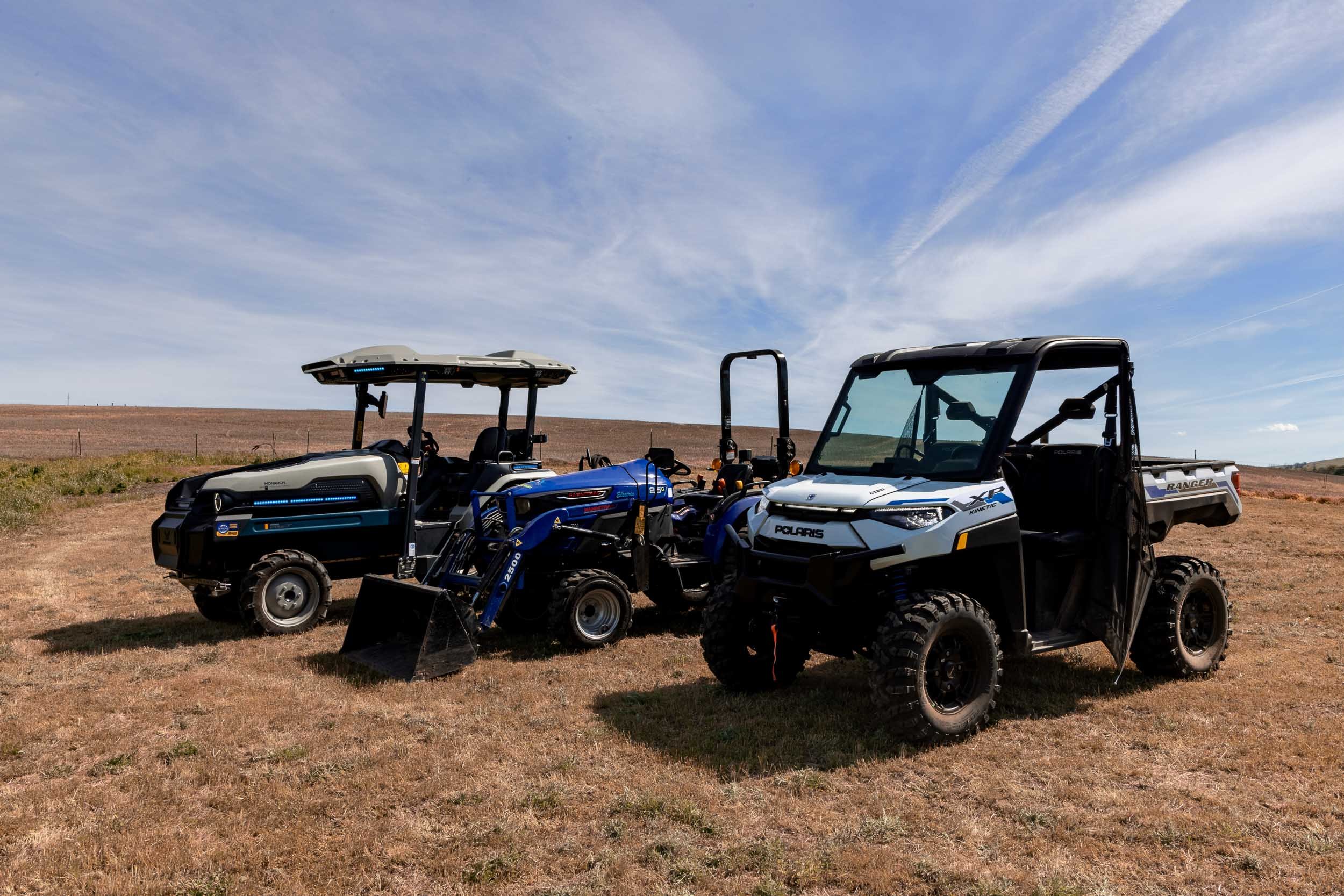
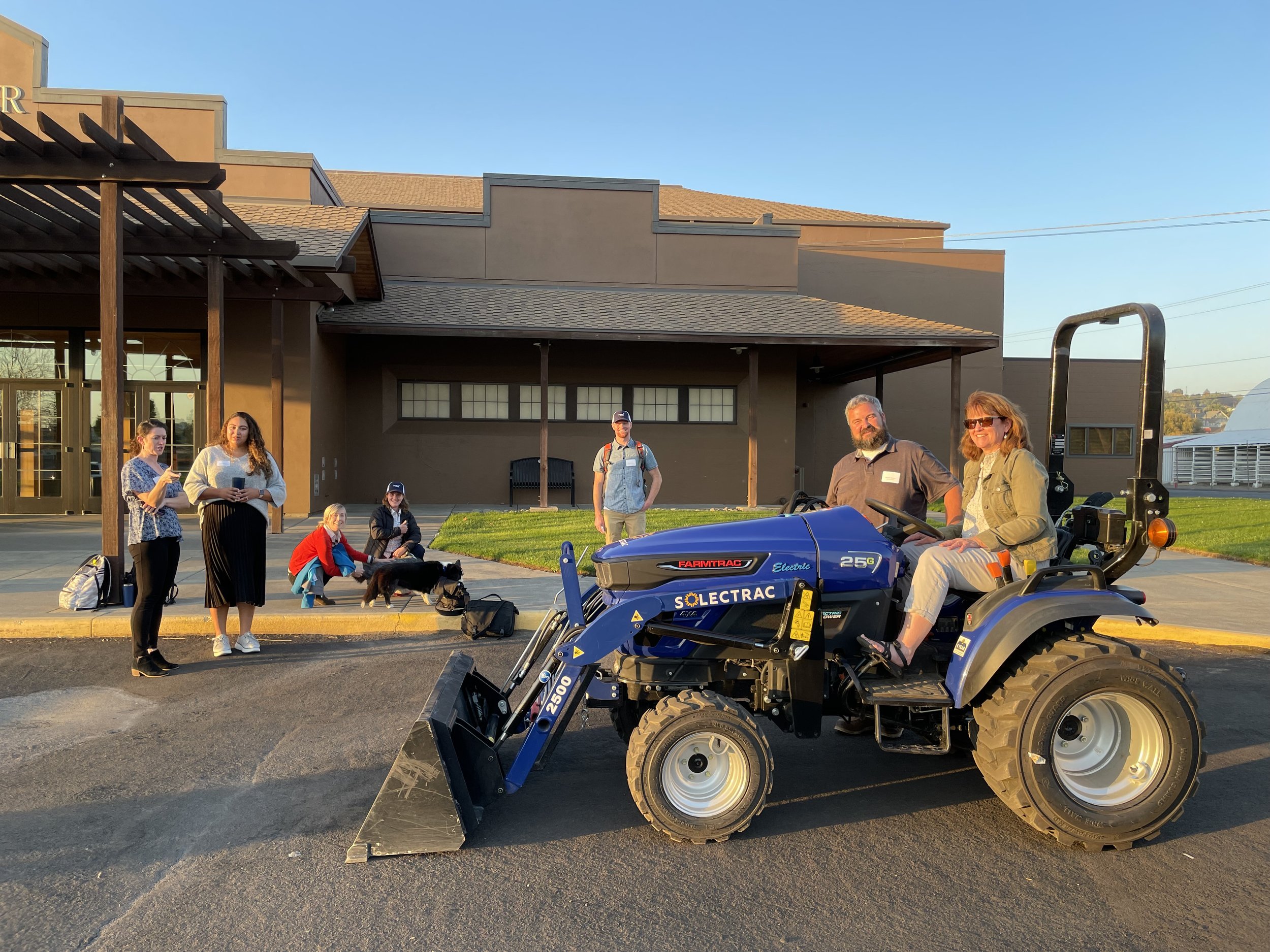

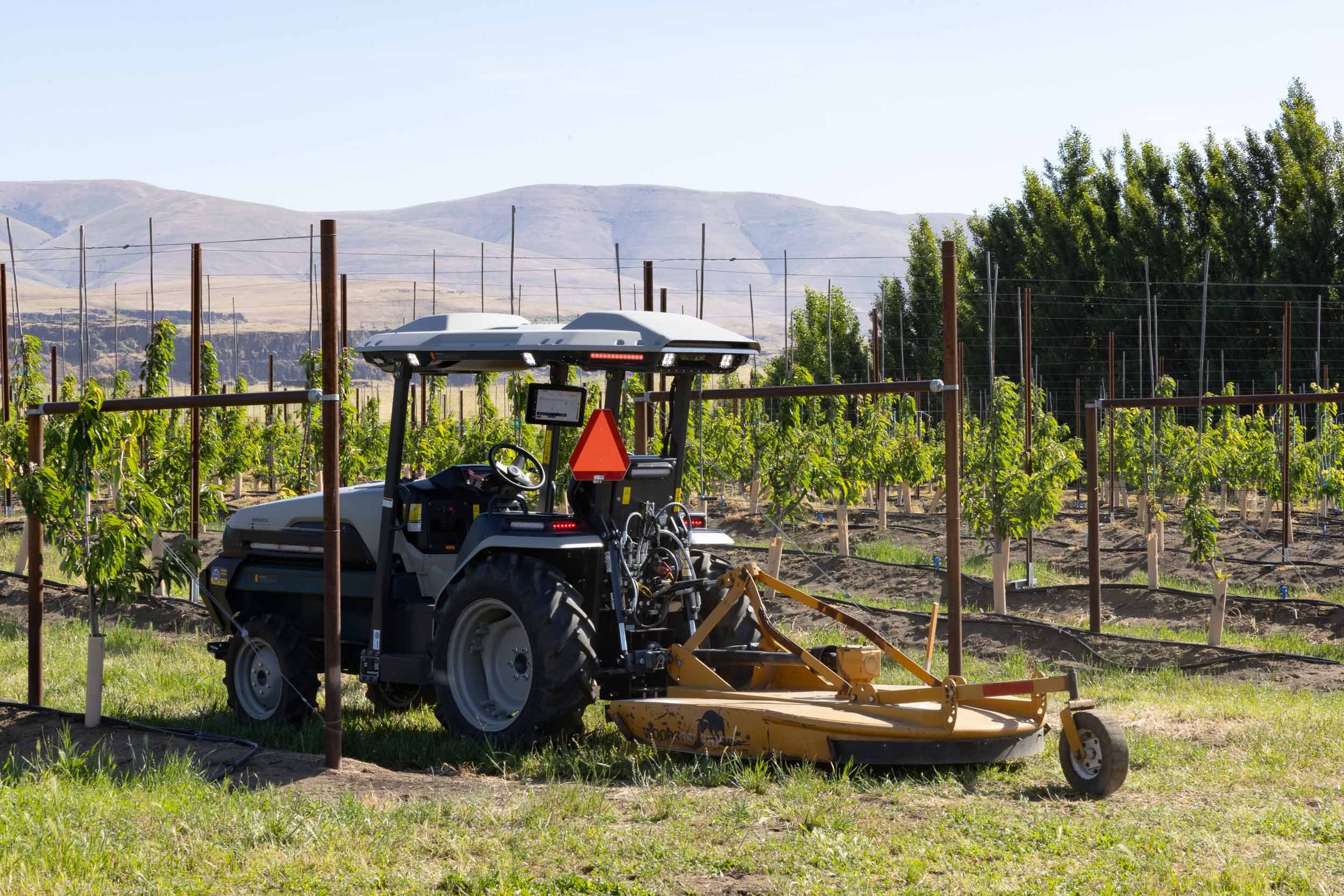


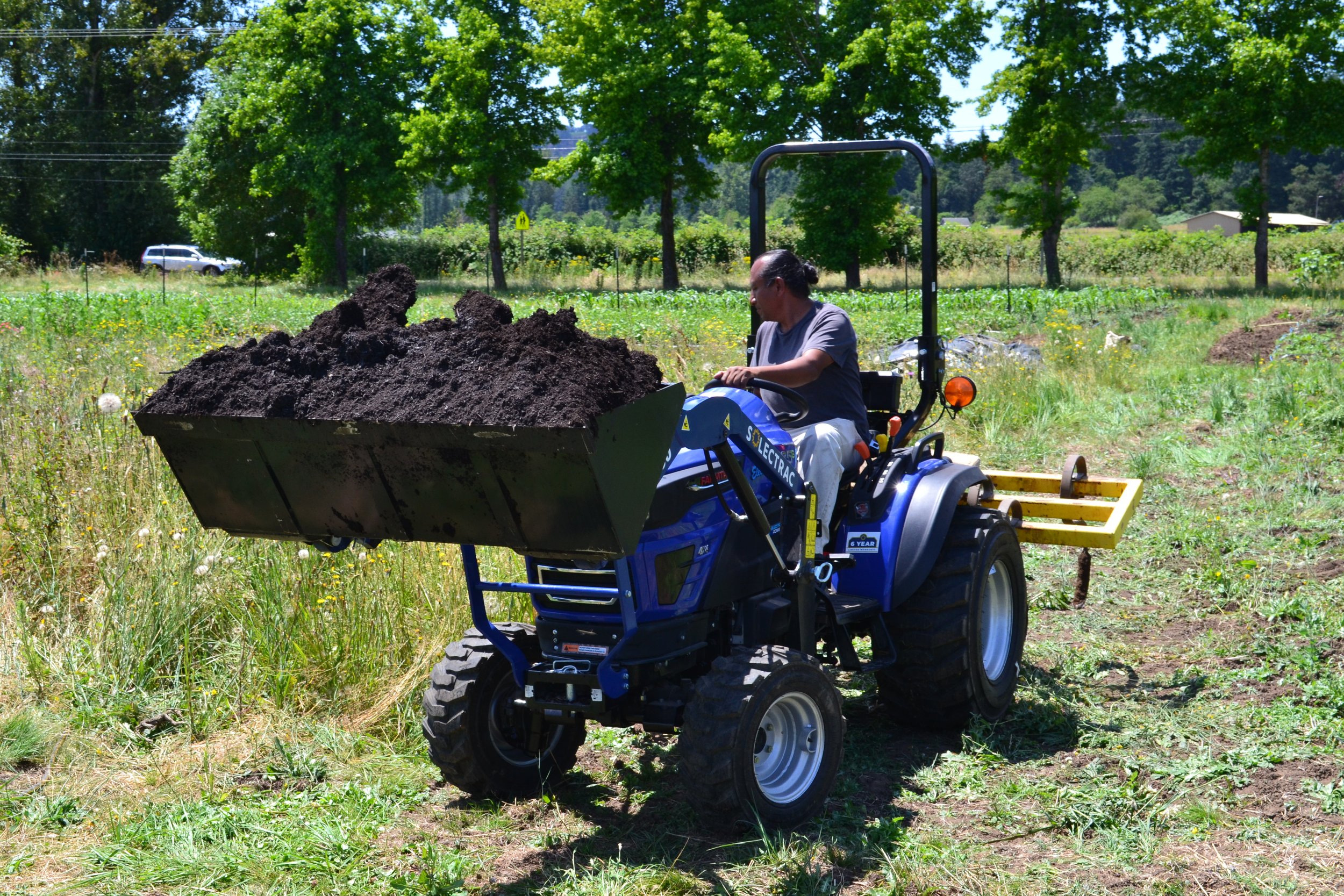
HELPFUL RESOURCES
-
Total Cost of Ownership of a Compact Battery Electric Agricultural Tractor > Link
Read about the economic, health and climate benefits of these electric tractors.
-
Pacific Northwest Electric Tractor Barriers Study > Link
Read about the current state of electric tractors for the agricultural market in the Pacific Northwest

OUR PARTNERS
This program is possible with the support of the Bonneville Environmental Foundation, U.S. Department of Energy, Alumbra Innovation Foundation, Pacific Power, Portland General Electric, Business Oregon, and other funding partners.
-
Forth envisions a world where clean and equitable transportation systems move everyone and everything.
They work in partnership to build lasting program and policy models that significantly expand equitable access to electric transportation in the U.S. and beyond. Visit their website!
-
WyEast provides education, outreach and on-the-ground technical assistance to agricultural producers and rural small businesses to accelerate the demand for energy efficiency and renewable energy projects. Energy Efficiency is the least cost resource of power for Pacific Northwest Utilities and ratepayers, Energy efficiency projects often deliver several levels of benefit to the project owner while reducing overall energy expenses. Renewable Energy projects utilize natural resources to produce local clean power. Visit their website!
-
BEF brings together partners across all sectors of society to co-create entrepreneurial solutions that address climate challenges by restoring freshwater ecosystems and catalyzing a renewable energy future for all. Visit their website!

